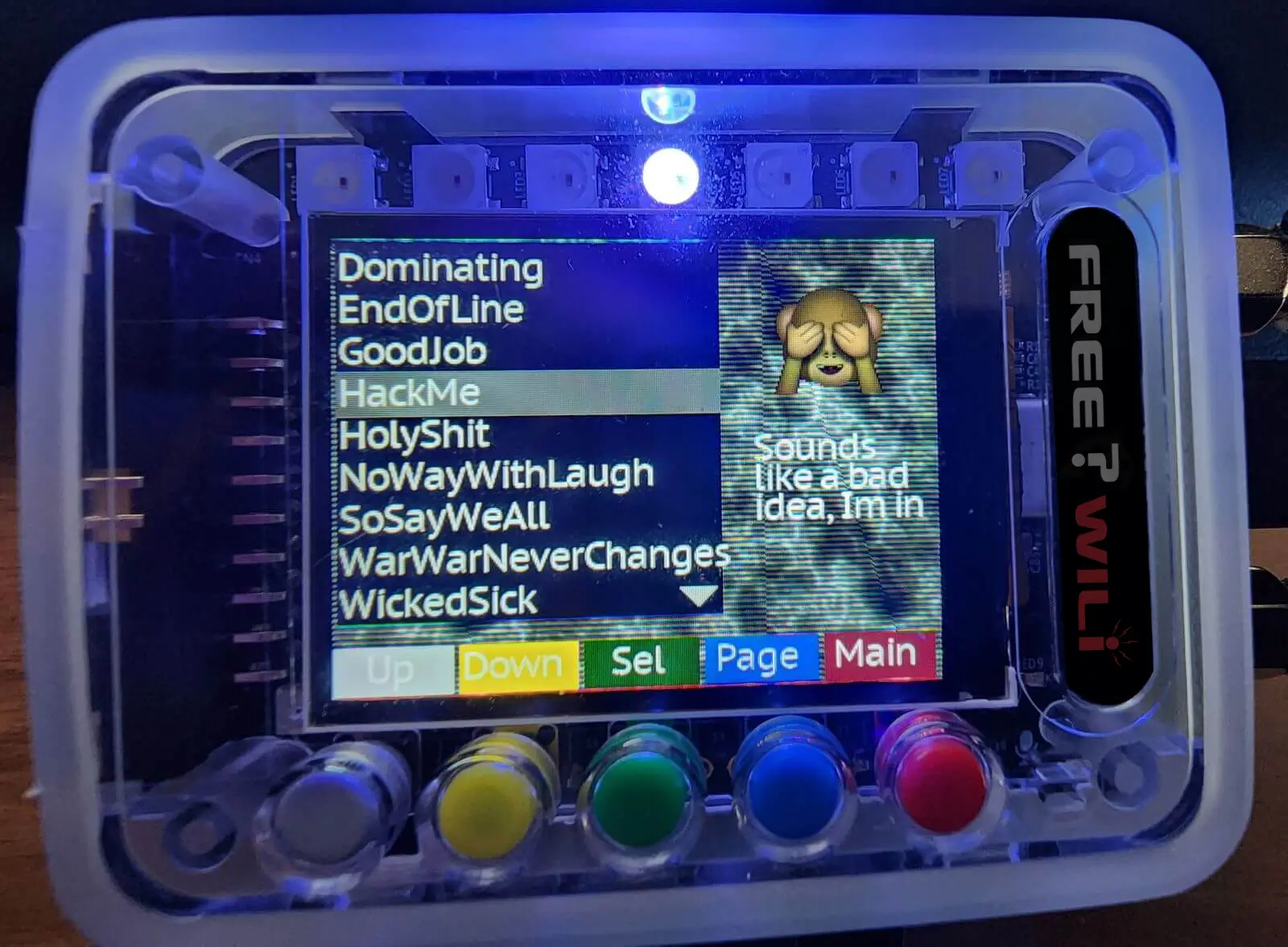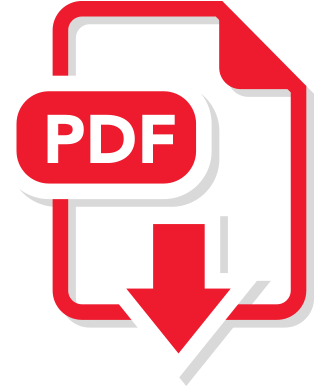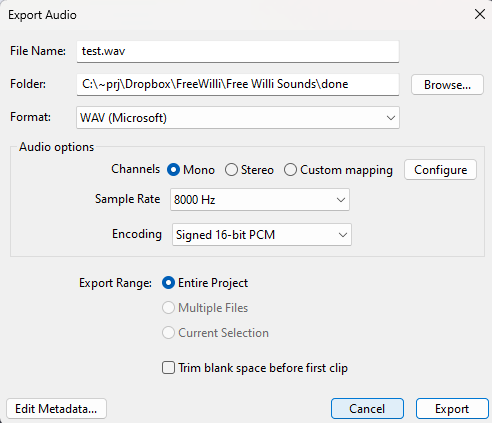Making sounds
FREE-WILi includes a speaker. The speaker allows you to play sounds stored as wav files in the file system.
The sounds directory can include wav files that can be played from the serial menu. The menu option 'g' will let you enter in a wav file to play. They will also be listed in the sound board app.
The wav files supported currently are 8khz stereo or mono files encoded as 16 bit PCM. The speaker is one channel so the second channel in stereo is discarded. Mono files are recommended because they are smaller.
The sounds are stored in the sounds directory. By default the sounds will be searched by name here. Since they are all wav extensions you do not need to include the extension. If you have a sound somewhere else in the file system, specify the entire path. For example a recorded sound, \record\rec1.wav
Sounds can be launched from the serial API or host RP2040 API. Also the sound board app can launch sounds.
There is an API call (playSoundFromNumber) that can read numbers out loud via a 1980s text-to-speech technique. This is playing sequences of wav files to say a number.
Converting Audio to Compatible WAV Files
To make your own sounds for FREE-WILi, the files must be in 8000 Hz, 16-bit PCM WAV format.
You can convert your audio using either method:
1. Use the Web-Based Audio to WAV Converter
‐ Easily convert your audio files into FREE-WILi compatible .wav files here:
👉 https://freewili.com/audio-to-wav-converter/
2. Use Desktop Software like Audacity®
‐ Audacity can export audio as 8000 Hz, 16-bit PCM WAV files.
App
The Sound board app allows you to play select ROM sounds and sounds from the file system.

API Calls for sounds
void playSoundFromFile(char * szSoundPath);
void playSoundFromNameOrID(const char * szSoundName, int iID);
void playSoundFromNumber(bool bFloat, int iNumber, float fNumber, int iFloatDigits);
ROM Sounds
FREE-WILi includes sounds in its ROM. Below is a list of ROM sounds.

FwROMAudioAssets.pdf
Software to edit and create proper wav files

Home
Audacity ®
